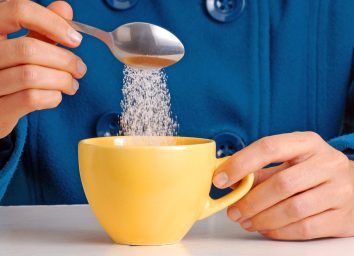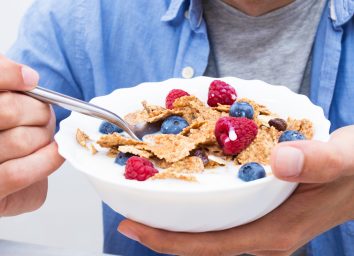Effortless Ways to Lower Your Blood Sugar, Says Nutritionist
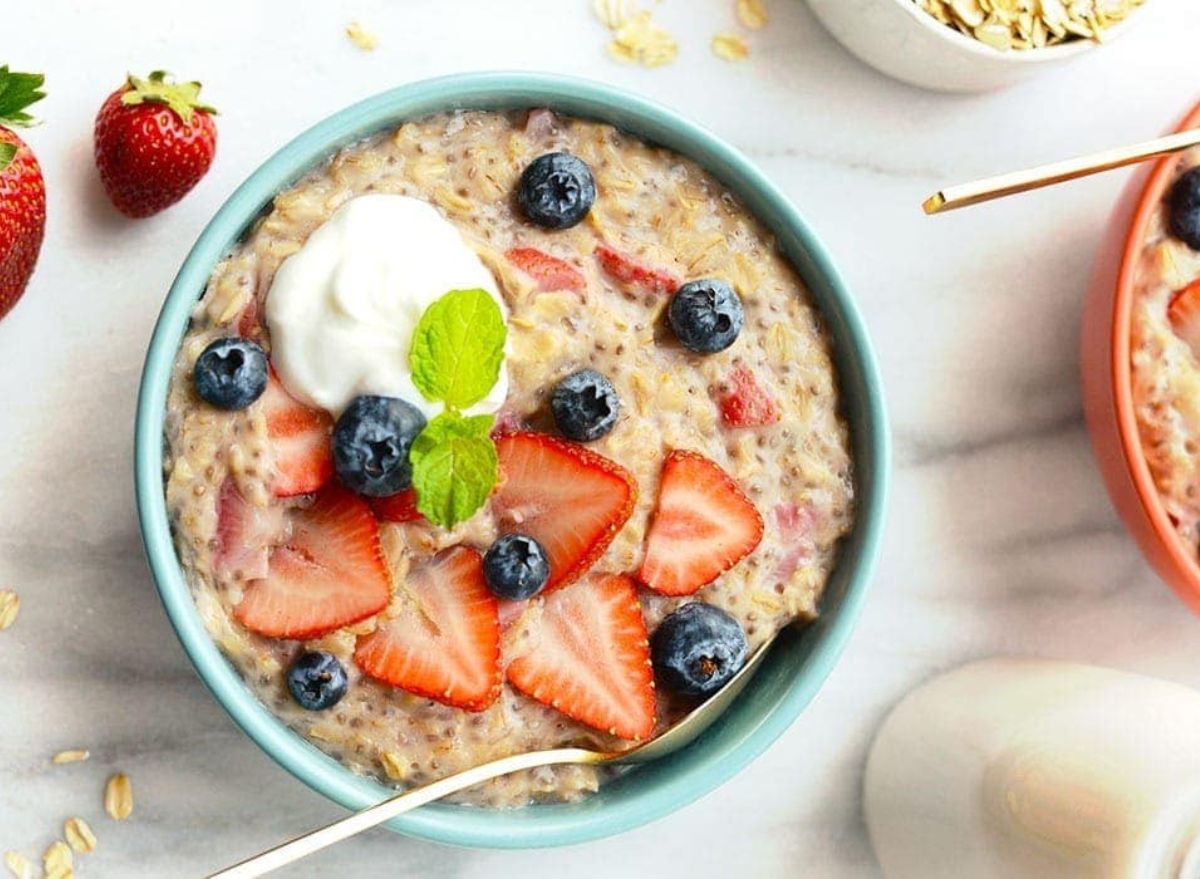
Of the millions of Americans diagnosed with diabetes, 88.2% use oral medications or insulin (or a combination of the two) for glycemic control—a statistic that might make you believe meds are the only way to manage blood sugar. And while it's always important to follow your doctor's instructions regarding medication, there are other natural ways to help keep your numbers steady, too.
Rather than let the meds do all the work, as a nutritionist, I recommend incorporating some simple diet and lifestyle measures to manage blood sugar. Not only will they nudge your numbers toward the healthy range, but they might also help you lose weight and feel better overall!
Try these six effortless additions to your routine—and then don't miss the five Blood Sugar Mistakes You Should Never Make.
Take a walk after meals.

If you've been living with prediabetes or diabetes for long, you've probably heard about the importance of incorporating physical activity. Abundant research shows that getting your muscles working and your blood pumping can keep blood sugar levels low. According to Harvard Health, both resistance training and aerobic exercise work to reduce HbA1c, even when they don't lead to weight loss.
But what if your schedule doesn't allow for hitting the gym for a daily sweat session? You can still reap the benefits of exercise with a simple after-meal walk. A study published in the journal Diabetes Care found that walking after meals significantly improved glycemic control in older people. Hitting the pavement for 15 minutes immediately after meals was even more effective at managing blood sugar than a sustained 45-minute walk at another time of day. (For more lifestyle tips, check out five extra healthy habits to adopt for diabetes.)
Try a sugar substitute.
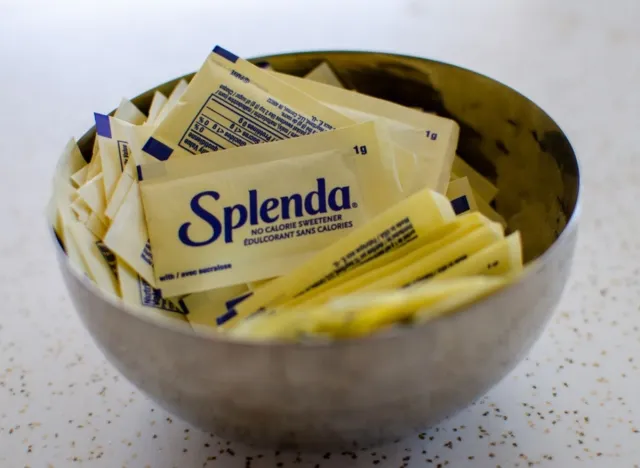
Doctors and dietitians have long touted zero-sugar sweeteners for people with diabetes—but they have a reputation for being less satisfying than the real thing. Before you turn up your nose at pouring a little pink or blue packet into your morning coffee, just remember: nonnutritive sweeteners have come a long way!
These days, you can choose from tons of alternatives that won't raise your blood sugar, such as stevia, sucralose, erythritol, and allulose. Many of these products are just as sweet as sugar and blend beautifully into baked goods or hot drinks. Take a look at our ranking of the best sweeteners for blood sugar and experiment to find one you like best.
Enjoy oatmeal for breakfast.
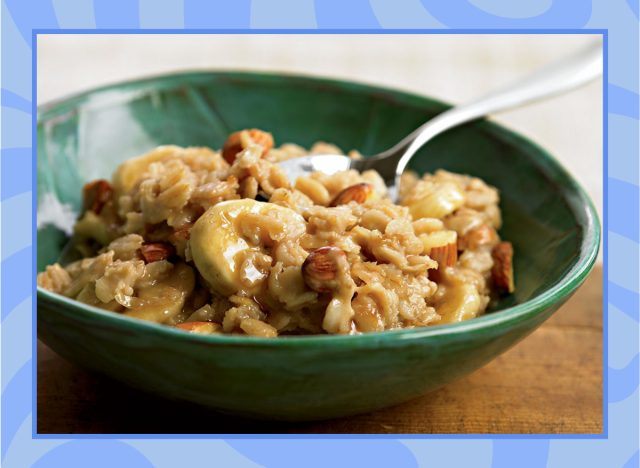
Not all carbs are created equal for your blood sugar. Fiber, though technically a carbohydrate, has dramatically different effects on your glycemic control than other, refined carbs. According to a 2020 study in the journal Nutrients, increasing consumption of soluble fiber in a meal can keep your blood glucose from spiking.
Looking to boost that all-important soluble fiber intake? Switching out refined grains for whole grains is an easy swap—especially at breakfast time. By eating oatmeal for your morning meal, you'll load up on soluble fiber, including beta-glucan, a fiber that's especially associated with lowering blood sugar. Don't miss our favorite blood sugar-friendly ways to prepare your morning bowl.
Set a consistent bedtime.

Everything looks better after a good night's rest—including, potentially, your blood sugar numbers. According to the Centers for Disease Control and Prevention (CDC), getting less than seven hours of sleep per night can increase your insulin resistance and make you hungrier the next day, setting you up for poor diet choices like high-carb, high-sugar foods. And an older study from 2008 found that sleep loss could lead to impaired glucose metabolism.
In a loud, stressful world, getting plenty of shuteye can be a challenge, and overhauling your sleep habits won't happen overnight (pun intended!). Still, simply going to bed at a consistent time each night promotes longer, more refreshing sleep.
Keep a water bottle handy.

As you manage your blood sugar, it may feel like you're constantly working to keep your carbs, sugars, and calories under a certain threshold. Fortunately, hydration is one category you don't have to limit. In fact, drinking plenty of water throughout the day could help your blood sugar stay in a healthy range.
The more water your kidneys have to work with, the better they can flush out excess sugar in your blood. One recent meta-analysis of six studies found that drinking more water reduced the risk of developing type 2 diabetes. Invest in a fun bottle that suits your style and sip away!
Choose dark chocolate for dessert.
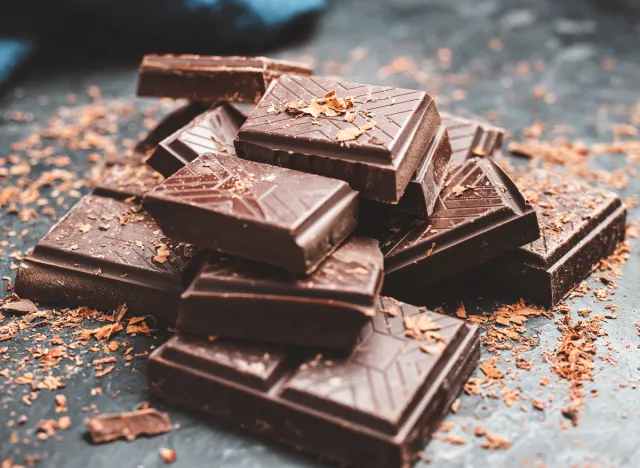
Desserts aren't totally off the table for people with blood sugar issues. One of the best options is a rich treat just about everyone loves: dark chocolate. (Who knew?)
Because it's filled with antioxidant flavonol compounds, this indulgent dessert might actually lower your blood sugar by helping cells secrete insulin. In one study from 2015, subjects ate about 1 ounce of dark chocolate per day. Not only did the chocolate not adversely affect their insulin resistance or glycemic control, but it also appeared to decrease both systolic and diastolic blood pressure. So go ahead and mindfully enjoy a delicious square here and there.
Not sure what dark chocolate to grab? Here are our top picks!

